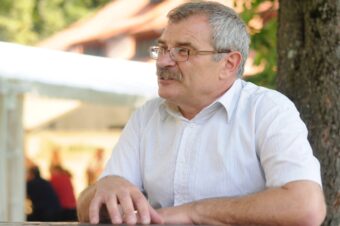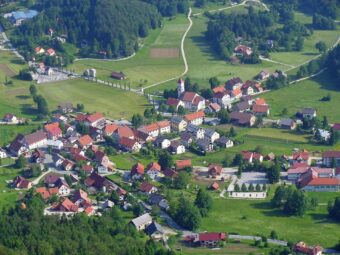
Suppose you had the opportunity to visit Slovenia. In that case, you must have noticed that there is no scattered paper and waste, all green areas are arranged, and what particularly impressed me was the flowers that can be seen on almost every terrace and window. It seems that in this country, people pay special attention to the space in which they live and that they really take care of the environment and its protection. The citizens who take care of everything are the most deserving of that, but also the nongovernmental organizations that are there to help and point out mistakes and omissions.
The Slovenian Association of the Ecological Movement – ZEG is an association of ecological movements whose common goal is the development and protection of the environment. It was founded in 2002 and currently unites 11 environmental movements and five non-profit institutions.
“In 1992, an association called the Slovenian Ecological Movement – SEG was founded, which gained 2,600 members in a few years. The Association of Ecological Movements – ZEG, founded in 1997, became the holder of the associations in Slovenia, and from 1997 to 2002, it helped in the establishment and registration of 15 associations. Our goal is to protect the environment. We have a large number of engineers, doctors, masters, and experts in many fields who are always available to us. They help us prepare expert opinions, remarks and everything we need when we give proposals for some laws and the like,” Karel Lipič, President of the Slovenian Association of the Ecological Movement, explains.
ZEG focuses on four activities: waste management, air quality protection, water protection and harmful radiation.
“Of course, we pay attention to other important areas and are all particularly interested in the energy issue. In addition, we pay special attention to education, especially the youngest, and we actively participate in the implementation of the Eco-School project. We cooperate with the Government and ministries, the Chamber of Commerce, and competent institutions. We have been given a special status, and every year we submit reports to the authorities because we actively participate in solving major problems in Slovenia. We supervise the construction of a landfill for highly active waste from the nuclear power plant. We are also participating in drafting the law for a better life for people who live near industrial facilities that can affect pollution,” our interlocutor says.
In focus:
There was a lot of talk about the Environmental Protection Act of Slovenia, and ZEG actively participated in its drafting. ZEG members were speakers at the Public Debate last year while they submitted another remark regarding the area of waste management and water protection. From the beginning, they followed the drafting of the law, and they also participated in the drafting and gave expert suggestions and remarks.
Waste problem

Although there is no waste in Slovenia, at least not the visible one, this country has big problems with it. They are intensively monitoring what and how it is being done in Croatia, as well as in the countries of the region when it comes to this. They pay special attention to the problem of plastic packaging, i.e. plastic waste.
“The bail system has been developed to some extent in Croatia, but their solutions have not brought great results. That is why i plan to hear from their representatives how the system works at the conference that will be organized in October this year so that we can see how we can apply it in our country,” Karel points out.
There is a developed system in Slovenia for collecting municipal waste. A good part of it is recycled, but the problem of its disposal needs to be solved permanently. In this association, they see the solution in constructing incinerators which would solve this problem but also provide a safe source of thermal energy. The incinerators would be modeled on those in Vienna, Germany, Italy, and Switzerland.
“We are fighting for industrial waste processing, and five locations for the construction of incinerators have been determined in Slovenia. Of course, some are against their construction, but I think that brings great damage to both the economy and industry. One will be built in Ljubljana, one in Maribor and three more in other places. All documents have been prepared for the incinerator in Ljubljana. The construction should begin early next year and it should be completed by 2024. When it comes to Maribor, the documentation is ready, and I expect that it will be built by 2024. Their construction will solve 60 to 70 percent of waste in Slovenia. Of course, during the construction of incinerators, the most modern technology must be used, they must not pollute the air and the environment, and they must provide electricity and heat”, Karel Lipič points out.
In their work, they are always guided by good examples from other countries, and professional counseling gives them answers to questions that bother them. Our interlocutor points out that the basis of everything is good laws, but also their good application. He pays special attention to the fact that municipalities are the most important in the whole system and the way in which they apply the laws.
Prepared by: Milica Radičević
Read the story in the new issue of the Energy portal Magazine RENEWABLE ENERGY SOURCES.



